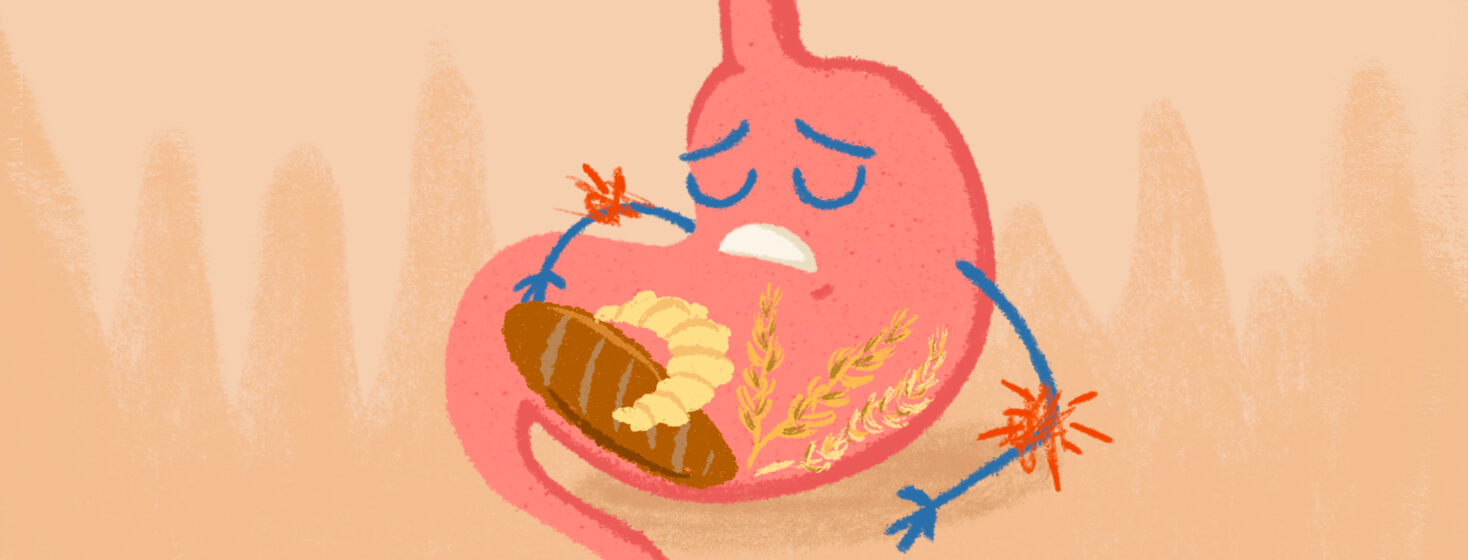Cystic Fibrosis and Celiac Disease
Many people hear cystic fibrosis (CF) and think of a disease that affects the lungs. While this is true, CF actually affects many systems in the body.
CF affects nearly all of the exocrine glands in the body. These glands usually produce liquid substances that lubricate the body. Mucous, salivary, and sweat glands are all exocrine glands. CF causes the liquid from the exocrine glands to become thick and sticky instead of thin and slippery. This causes the liquids that should lubricate to plug up surfaces instead. This typically happens in the airways, but it also occurs in the digestive system, including the small intestine.1
Celiac disease explained
Celiac disease (CD) is a condition that causes your intestines to have an immune reaction to gluten. Gluten is a protein found mainly in wheat, but it is also in oats, barley, and rye. CD damages the small intestine over time. It can cause malnutrition because the body cannot absorb the nutrients it needs. CD can also cause many uncomfortable symptoms. These can include:2
- Diarrhea
- Fatigue
- Bloating
- Anemia
- Weight loss
- Constipation
- Abdominal pain
- Loss of bone density
This is just a short list of CD symptoms. It is important to note that these symptoms may be different between adults and children.
Connection between CF and CD
When doctors first described CF in the late 1930s, they noticed 3 connected symptoms:3
- Sticky secretions in the lungs
- Changes in the pancreas
- People with cystic fibrosis often had celiac disease. This happened so often that doctors thought CD was actually a symptom of CF.
CD and CF have some very important overlapping symptoms. Both CF and CD can cause:1,2
These symptoms may be more pronounced in children.
Because these symptoms are common in people with both conditions, doctors may not realize someone with cystic fibrosis has celiac disease. In a study, 2 people who had CF discovered they had CD when they had their bone density tested. Both of the people were in their late 20s. This is a fairly early age to have low bone density. They were tested for CD and discovered they had both conditions.4
In another study, researchers noted that 3 children were successfully treated for cystic fibrosis but still had intestinal symptoms. They were then tested for celiac disease and found to have both conditions.5
More than researchers know
Celiac disease is fairly common in the general population. About 1 out of every 100 people has CD. On the other hand, only about 1 out of every 10,000 people have cystic fibrosis. Unfortunately, doctors do not know how many people with cystic fibrosis have celiac disease. There is an estimate in Norway that 1 out of every 83 people with CF have CD. Reports in Poland estimate even higher, with 1 out of every 50 people with CF having CD.3
The problem with these estimates is that celiac disease is under-diagnosed in people with cystic fibrosis. People with CF are not typically tested for CD because the symptoms of CD are often the same as the symptoms of CF by itself. That means that there are probably more people who have both diseases than researchers know.4,5
Treatment and testing
Celiac disease is treated by simply removing gluten from the diet. This stops the immune reaction to gluten in the small intestine. Doctors are now also considering research to see if some of the newer cystic fibrosis drugs will also help to treat celiac disease. Because the 2 conditions are so closely related, doctors think that newer drugs may be able to treat both conditions.2,5
If you or someone you love has CF and you suspect they may have CD as well, talk to your healthcare team. Testing for CD usually involves blood tests. If these tests are positive, your doctor may order a scope to take pictures of your digestive system. This will show if CD has caused any damage to the digestive system.2
Do you or your loved one with cystic fibrosis also have celiac disease? Share your experience in the comments below.

Join the conversation